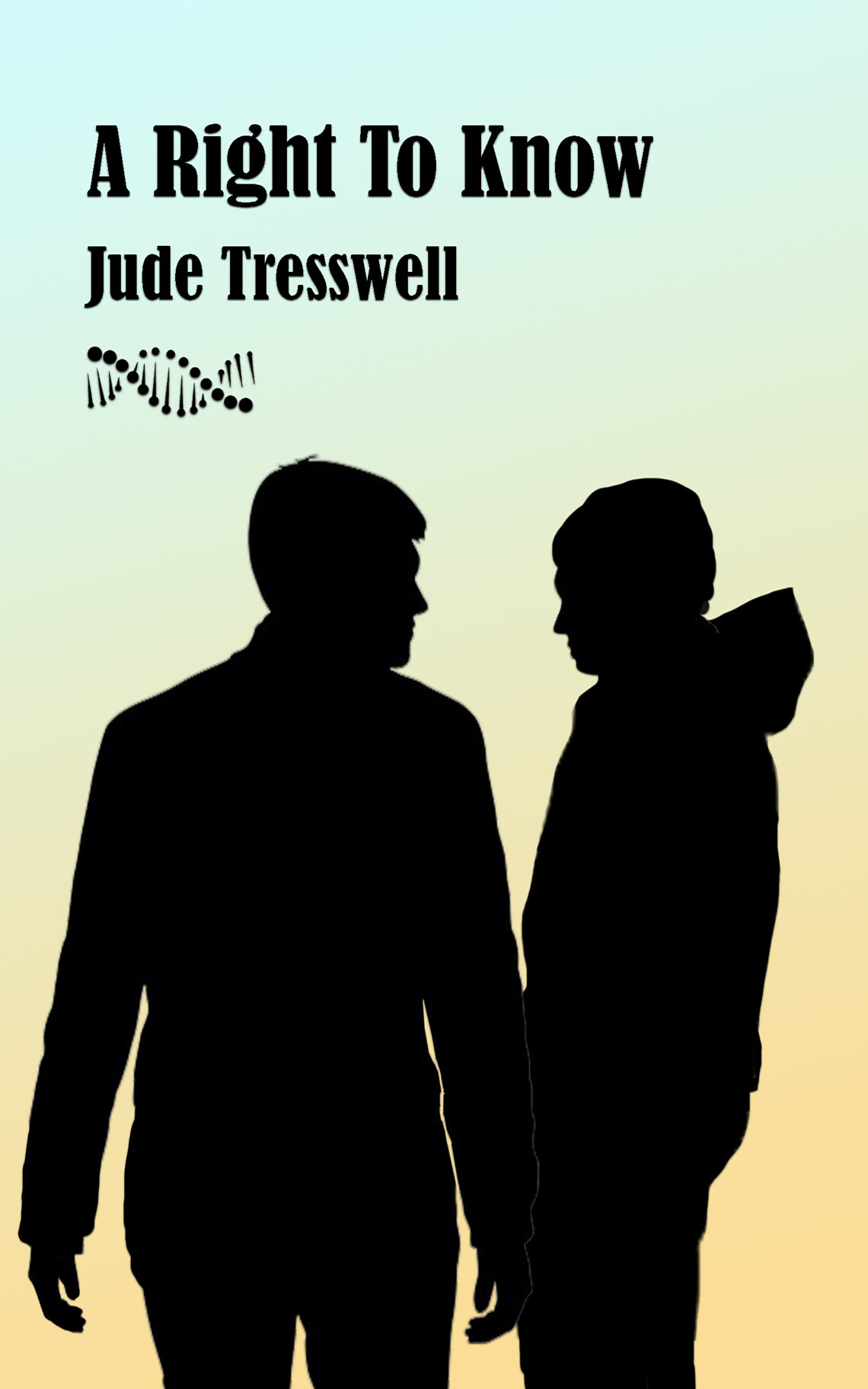
BLOG TOUR: A Right To Know by Jude Tresswell (Excerpt + Guest Post)
Title: A Right To Know
Series: County Durham Quad 7
Author: Jude Tresswell
Publisher: KDP
Release Date: 31st July 2021
Heat Level: 2 – Fade to Black Sex
Pairing: Male/Male Menage
Length: 57300
Genre: Mystery, asexual/sexual relationship, family drama/biological father, polyamorous relationship
Add to Goodreads
Synopsis
“A son! A child! How? Why? Fuck! Phil! You can’t have! And does this sperm-child want to see you?”
Abandonment, trust, suspicion and compromise—integral parts of a mystery that involves industrial espionage, sperm donation and coming to terms with oneself and the truth.
Sperm donors know that now, under UK law, offspring who reach eighteen have the right to learn a donor’s identity and last known address, but Phil Roberts donated before the law was changed. He is shocked and dismayed to learn that he has a son called Lewis who intends to visit. Phil’s husband, Raith, is furious—and very scared.
What does Lewis Lennon really want? The man he has always called ‘dad’ is dead. Was his death suicide or was he murdered? Lewis wants Phil to find out. So, Phil, Raith, Mike and Ross, the County Durham Quad, plus their special friend, Nick, are embroiled in another investigation, but, as always, their relationships come under scrutiny too.
Excerpt
Phil sat at the big kitchen table. His beard, neatly trimmed as always, failed to hide the lack of colour in his face. He looked shocked. He was holding a letter.
“You alright, Phil?” Mike was puzzled and concerned. “Bad news?”
“Not ‘bad’ exactly. Unexpected. Very.” He sighed. “I’ve an eighteen-year-old son. Sperm donation.”
Raith, Phil’s husband, dropped the glass of juice he was drinking. It rolled off the table and smashed as it hit the floor.
“A son! A child! How? Why? Fuck! Phil! You can’t have! And does this sperm-child want to see you?” Raith snatched the letter from Phil’s hands. “I can’t read this fucking stuff; it’s in joined-up. Why didn’t he type it?”
“He probably felt that this was more personal,” Mike suggested, retrieving the letter from the floor where Raith had slung it in disgust and shaking it free of orange juice.
“It’s fucking personal alright. You always said they couldn’t identify you, Phil. What the fuck’s gone wrong?”
“It looks as though we might find out,” said Ross, the fourth member of the quad. He was reading the letter over Mike’s shoulder. “He intends to visit. I think we need to talk.”
***
Mike, Ross, Raith and Phil, four men who shared a home in Tunhead, a tiny hamlet in the Durham hills. Tunhead derived its name from Tun Beck, a little stream that flowed into the larger River Wear. Tun Beck lent its name to BOTWAC too—the Beck on the Wear Arts Centre. Ross managed BOTWAC, Raith provided paintings and ceramics and Mike carried out the maintenance. Phil was the only one whose work was separate. He was a surgeon at Warbridge Hospital, an hour’s drive away and, in a sense, his medical background was the cause of the morning’s shock announcement. The four of them talked about the news that evening.
“You knew I’d donated sperm, Raith.” Phil had always made it clear that when he was a medical student, like many others on his course, he had donated both for research and for procreation.
“I know that, but you’d always done it anonymously. You said so, and you never did it after they changed the law.”
Raith was referring to a change that occurred in 2005 regarding data held at UK fertility clinics. At licenced clinics, that is. Prior to the change, offspring conceived by sperm or egg donation could learn some information about their donor when they reached sixteen, but what was released was very general. If donors wished to remain anonymous, they could do so. From 2005, though, anonymity was lifted. Sixteen was still the age of release of the ‘non-identifiable information’, but at eighteen, offspring conceived by donation had the right to be told their donor’s name and date of birth and, also, their donor’s last known address.
“I didn’t donate after two thousand and five. I think I’d know if I did.”
“Sperm can be frozen though, can’t it, Phil? Perhaps it was used after the change was implemented.”
“Only for another year or so, Ross, and under the old anonymity rules. There was a transitional period but, after that, sperm could only be used in exceptional circumstances. To create a sibling, for example. I remember being contacted about it. I had the option of… going public, if you like, but I chose not to do so. I didn’t want…I didn’t want a child, well, not one that I’d feel some responsibility for. I suppose, if I’m honest, I did want to pass on my genes, have that sense of immortality—I knew it was unlikely that I’d ever father a child with a woman. I just wanted to… be helpful, I suppose. I gave a brief self-description at the time, but the details would apply to thousands of people: eyes, hair, height, weight, ethnicity. Even if you narrowed the count with ‘student medic’ and my year of birth, you’d still be talking hundreds. I was careful not to leave traces.”
“How thoughtful of you!”
“That’s not helpful, Raith.”
Ross chastised gently but, tonight, too harshly for Raith.
“Helpful! It’s not help Phil needs—it’s a fucking vasectomy, but he’s eighteen years too late. I’m going up.”
No hugs, no kisses—the little goodnight habits that told the men that they were loved and cared for and cared about. Just “I’m going up” and heavy footsteps on the stairs.
Purchase at Amazon
Marketing. Why I like podcasts.
They’re such a new phenomenon: 2004—Americans Adam Curry and Dave Winer are credited with inventing them. It seems that the word was first used in an English newspaper, though—in the Guardian in an article by Ben Hammersley. By May, 2005, the Podcasting: Do-it-yourself Guide had been published (by Todd Cochrane) and, within a couple of months, President George W. Bush was using a podcast to deliver his weekly address to the US nation. By December, ‘podcast’ was official (the word of the year in the New Oxford American Dictionary) and, now, there are podcasts for nearly everything. True, most of them don’t get the millions of clicks that the big ones do. In fact, I’ve read that the majority have tiny listening figures. So, perhaps podcasts aren’t the best way to reach masses of potential readers, but, of course, episodes stay online long after they have aired. That has to be a bonus. I’ve guested on a few podcasts and enjoyed doing so. What’s more, some target LGBTQ+ authors and/or books with queer themes. I’ve been a guest on three of these: WROTE, Queer writers of crime and (still to air) Queer Words.
All my podcasts have been recorded on Skype or Zoom and, strangely enough, that suits me. I’m quite a shy person and I find the virtual world less threatening than the real one. I’m quite happy to talk to a face on the net, or even talk to a blank screen: recordings are often just audio. Despite being shy, I do like to chat and find out about people. Yes, the idea is for listeners to discover stuff about the interviewee rather than about the podcast host/s, but listeners don’t always hear the full chat. There can be a lot of cutting and conversations can continue beyond the official cut-off. I ended up discussing the geology of the English Channel (the French La Manche) with one host. Nothing at all to do with the books. Just something both of us were interested in.
For me, in a sense, the best thing about guesting is that, a bit like writing some blogposts really, it can make you think about why and how you write. How do you give your characters a unique voice? If, like me, you are LGBTQ+, how does that impact your content? Do you want it to? I doubt that it’s necessary to self-analyze your writing, but it’s interesting to do it and, often, informative. True, a writers’ club would probably offer similar opportunities (don’t know: I’m far too shy to join one), but I think I’m more aware of my craft than I was before podcast-hosts started asking me their extremely direct questions. That isn’t meant to sound conceited: I’ve a long, long way to go. I just mean that by reflecting on my answers, I can try to improve.
Worth thinking about, surely?
Thank you for the opportunity to offer some thoughts,
Jude
Para. 1 timeline from https://internationalpodcastday.com
Discover the entire series!
Tales that track the exploits of Mike, Ross, Raith and Phil, four men who live and love in County Durham, North-East England. Together with, from Book 3 onward, their friend, Nick Seabrooke, the Quad solve crimes, are accused of crimes and, occasionally, commit crimes. Their actions jeopardise their relationships. Sometimes, the biggest threat they face is staying together. Each tale comes with its own plot, and background is included to aid new readers. Feel free to jump in anywhere.
Available from Amazon
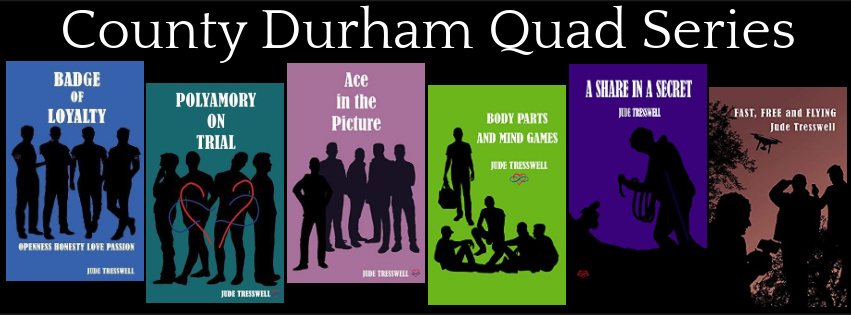 Meet the Author
Meet the Author
I’m a long-married, asexual, cis-gender female who lives in southeast England. I’m from northern England though, and the north is the setting of all my stories. You can see the setting on my Youtube channel. This isn’t a #ownvoice tale, though there’s certainly some ace-rep in it. Part of the motivation was my dismay at receiving, unasked for, the results of an ancestry test earlier this year. A different situation from Phil in the story, but I felt for him! A TW: parental suicide. Again, it’s something I have experience of. I hope I have dealt with it sensitively.
Website | Goodreads



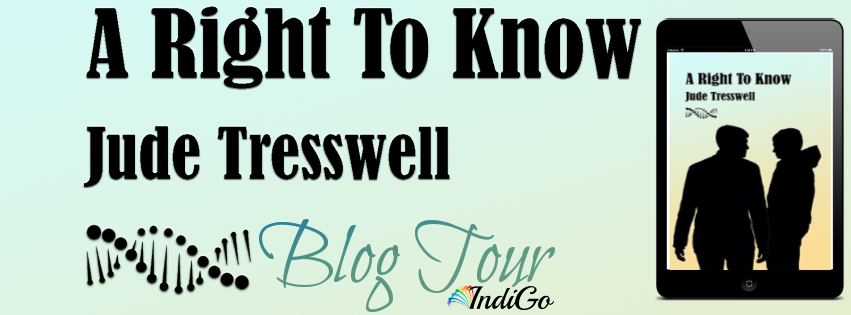
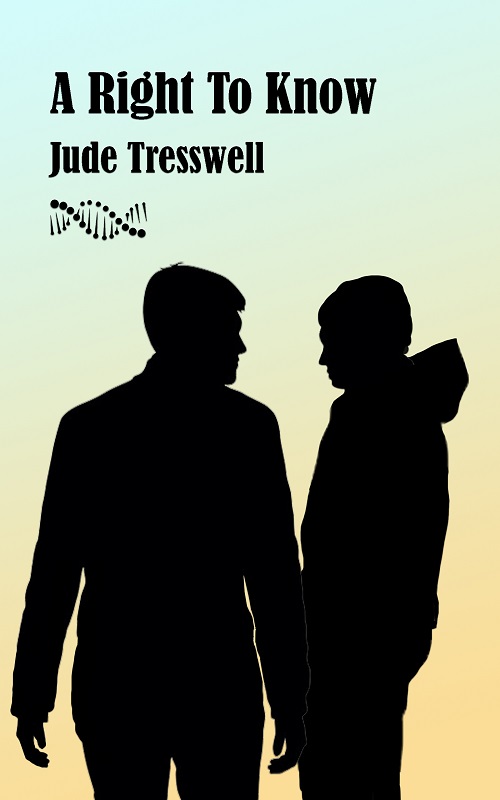




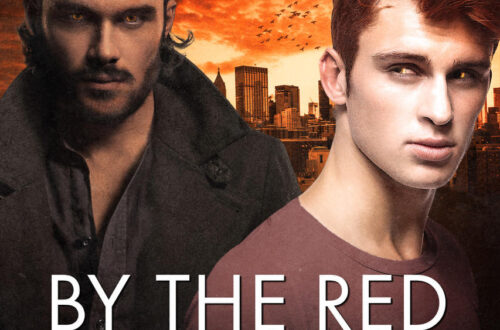
2 Comments
polyallsorts
Many, many thanks for the opportunity to reach some new readers through your lovely, colourful site. I’m really appreciative – Jude
neverhollowed
You’re welcome! I’m happy to feature your books